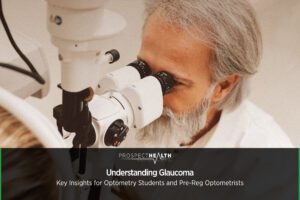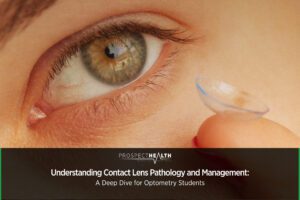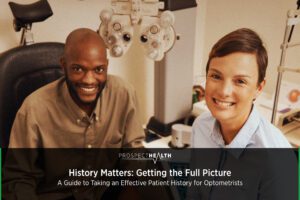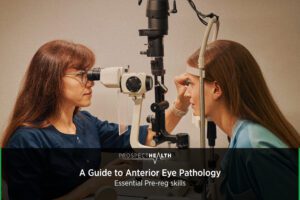
Understanding Glaucoma: Key Insights for Optometry Students and Pre-Reg Optometrists
December 4, 2025
Glaucoma remains one of the leading causes of irreversible blindness worldwide, and as a future optometrist, understanding its diagnosis and management is crucial. In a recent webinar hosted by Prospect Health, optometrist Anisa walked through the fundamentals of glaucoma classification, diagnosis, and treatment. Here’s a summary of the key learning points to support your studies and clinical practice as you prepare for qualification.

Seeing Ethically: GDPR, the GOC, and You: Why this training matters in your Optometry pre-registration year
November 24, 2025
As optometrists, we handle highly sensitive information every day, from medical histories and personal details to biometric data like retinal scans. Understanding how to manage this information ethically and legally is central to providing safe, professional care.

Understanding Contact Lens Pathology and Management: A Deep Dive for Optometry Students
November 10, 2025
When it comes to contact lens wear, understanding the subtle differences between various pathologies is key to managing patient comfort and ocular health. In her webinar, Aneesa Chowdhury explores common and uncommon contact lens-related pathologies, their causes, clinical signs, and management, all essential knowledge for any aspiring optometrist.

Getting the Full Picture: A Guide to Taking an Effective Patient History for Optometrists
October 21, 2025
Understanding a patient’s story is one of the most crucial skills in optometry. Before you ever reach for a diagnostic tool, your patient’s history can tell you more than you might imagine. Each symptom has a backstory and your goal as a clinician is to master that story.

A Guide to Anterior Eye Pathology: Essential Pre-reg skills
October 14, 2025
Recently, Aneesa led a detailed session on anterior ophthalmology, walking through common eye conditions, their presentation, and management. The webinar covered cataracts, meibomian gland dysfunction, blepharitis, and various causes of red eye.

